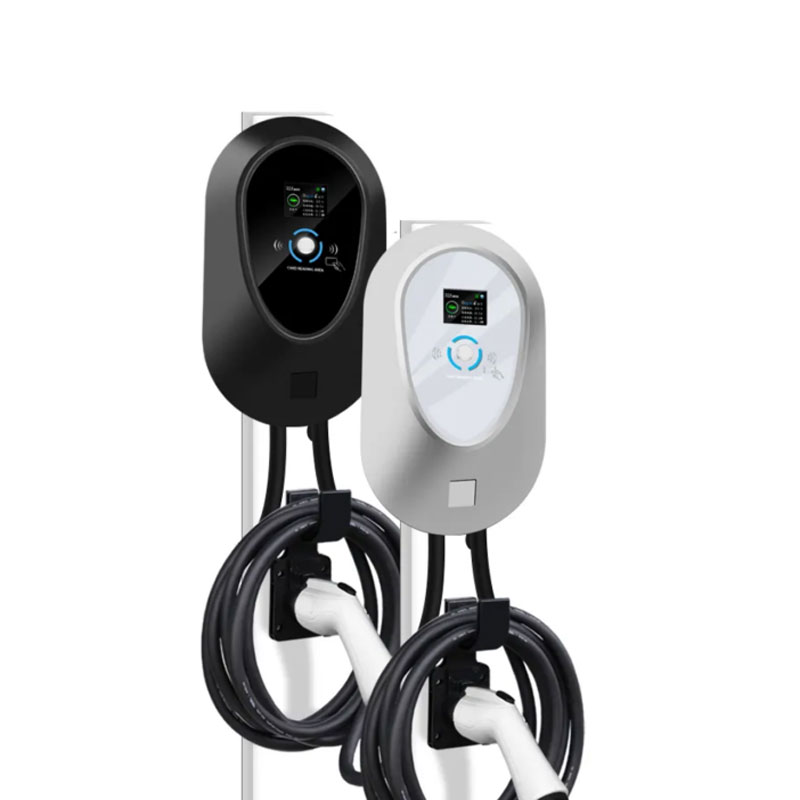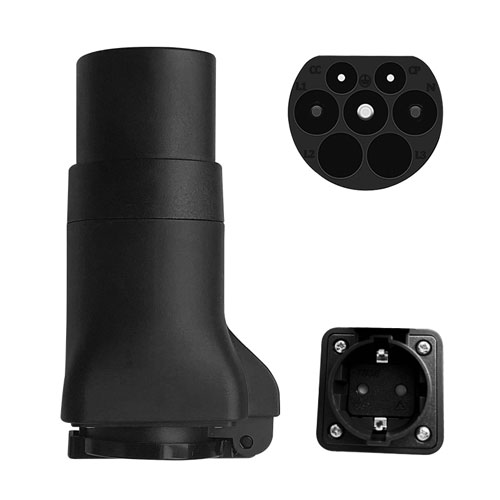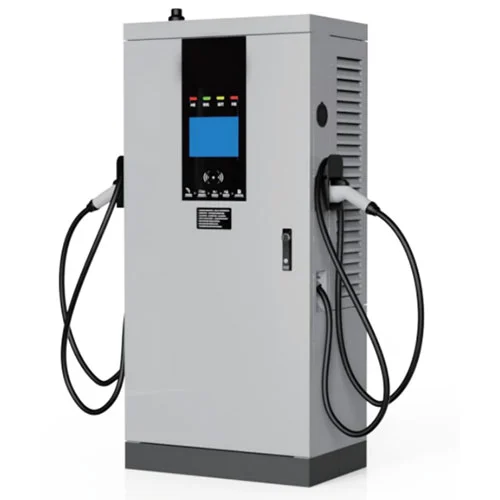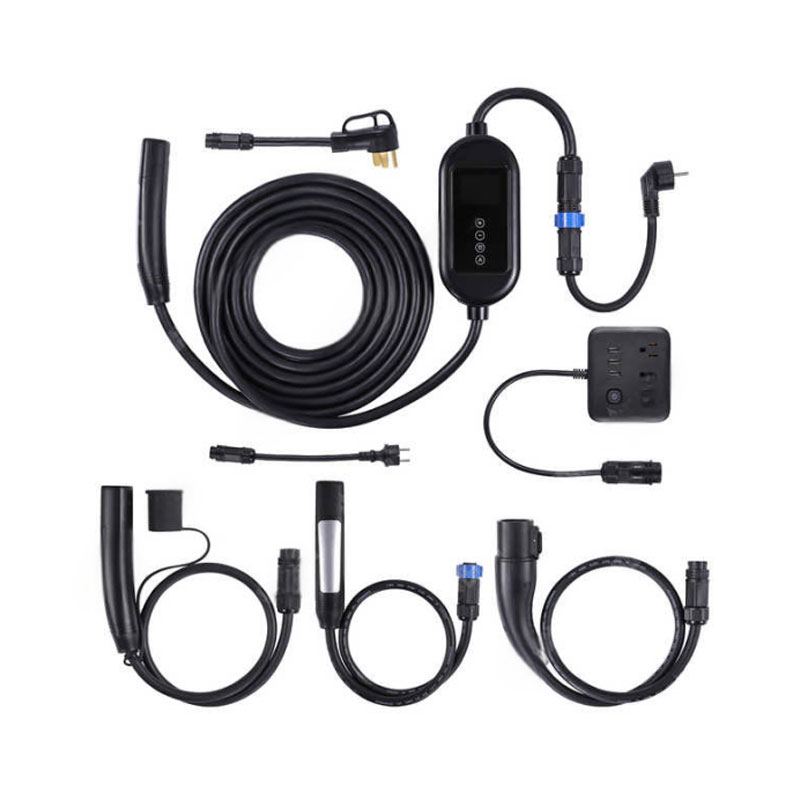What Makes Wall Mounted AC Charging Piles the Future of EV Infrastructure?
The global shift toward electric vehicles (EVs) is no longer a distant trend; it is a present reality. Nations worldwide are tightening emission regulations, automotive manufacturers are launching new EV models, and consumers are rapidly adopting electric mobility as a sustainable alternative to internal combustion engines.
Among the available charging technologies, wall mounted AC charging piles stand out as one of the most practical and widely deployed solutions. They are compact, versatile, and efficient, making them ideal for residential garages, commercial buildings, office parking lots, and even public facilities. Unlike fast DC chargers that require substantial infrastructure investment and grid reinforcement, AC charging piles are more affordable and accessible, allowing both individuals and businesses to adopt EV charging without major barriers.
A wall mounted AC charging pile, at its core, provides alternating current power to EVs, where the vehicle’s onboard charger converts it to direct current for battery charging. This process ensures compatibility with most EVs on the market, offering a universal solution for users. The wall-mounted design adds convenience, saving space while delivering high functionality in both indoor and outdoor installations.
What Is a Wall Mounted AC Charging Pile and How Does It Work?
A wall mounted AC charging pile is an electrical device that supplies alternating current to charge electric vehicles. Its “pile” designation emphasizes durability, reliability, and compliance with safety standards, while the “wall mounted” format highlights its compact, space-saving installation. Unlike large free-standing stations, these devices are directly fixed on walls, pillars, or vertical surfaces, making them especially suitable for limited spaces.
Key Functional Components
-
Power Module: Ensures steady current supply with overload protection.
-
Communication Interface: Many modern AC piles support smart connectivity through Wi-Fi, Ethernet, or 4G.
-
User Interface: LED displays, mobile apps, or RFID cards provide easy operation.
-
Safety Protection: Integrated features include leakage protection, overcurrent protection, surge resistance, and temperature monitoring.
-
Connector Standard: Equipped with Type 1 or Type 2 connectors depending on regional standards.
How It Works
When an EV is plugged into the wall mounted AC charging pile:
-
The device supplies alternating current.
-
The EV’s onboard charger converts this AC into DC to charge the battery.
-
Smart monitoring ensures that charging is performed safely, with communication between the charger and vehicle to regulate voltage and current.
This process allows users to charge vehicles overnight at home, during work hours at office parking facilities, or even in commercial areas while shopping.
Technical Specifications of Wall Mounted AC Charging Piles
| Parameter | Specification Options |
|---|---|
| Input Voltage | 220V – 240V (Single-phase) / 380V – 415V (Three-phase) |
| Output Power | 3.5 kW, 7 kW, 11 kW, 22 kW |
| Connector Standard | Type 1, Type 2, GB/T |
| Cable Length | 4m – 7m |
| Protection Level | IP54 – IP65 (Indoor & Outdoor) |
| Safety Functions | Overvoltage, overcurrent, leakage, surge, temp control |
| Communication | Wi-Fi, Ethernet, 4G, OCPP 1.6 / 2.0 |
| Operating Temp | -30°C to +55°C |
| Installation | Wall mounted / pole mounted |
With these specifications, wall mounted AC charging piles can be tailored to residential, commercial, and fleet requirements, ensuring flexibility in deployment.
What Are the Benefits of Using Wall Mounted AC Charging Piles?
The advantages of installing wall mounted AC charging piles extend far beyond basic charging. They represent a strategic investment in convenience, sustainability, and long-term mobility infrastructure.
Space-Saving Design
Unlike large floor-mounted stations, wall mounted designs require minimal ground space. This makes them perfect for private garages, underground parking lots, and tight urban environments where space efficiency is essential.
Cost-Effective Deployment
AC charging piles are significantly less expensive to install than DC fast chargers. They do not require heavy-duty grid upgrades, making them accessible for individuals, businesses, and property developers.
Compatibility Across EV Models
Most EVs come with an onboard AC-to-DC converter, making wall mounted AC piles a universal solution. Whether charging a compact EV, a plug-in hybrid, or a long-range electric SUV, compatibility is rarely an issue.
Smart Charging Features
Many units now support intelligent features such as:
-
Scheduled charging during off-peak hours.
-
Energy load balancing for multiple chargers in one facility.
-
Real-time monitoring via mobile applications.
-
Remote updates through OCPP protocols.
Enhanced Safety Standards
High-quality wall mounted AC charging piles integrate multiple safety protections, ensuring peace of mind for users. IP-rated enclosures allow outdoor use, and built-in protective devices safeguard both the vehicle and grid.
Environmental Contribution
Encouraging the adoption of electric mobility, AC charging piles contribute to lower emissions, helping cities and corporations achieve sustainability targets.
Common FAQs About Wall Mounted AC Charging Piles
Q1: What is the typical charging time with a wall mounted AC charging pile?
A: Charging time depends on the output power of the charging pile and the capacity of the vehicle’s battery. For example, a 7 kW AC pile can charge a 40 kWh EV battery from empty to full in approximately 6–7 hours. A more powerful 22 kW unit can reduce this to about 2–3 hours, provided the vehicle supports higher onboard conversion rates.
Q2: What is the difference between AC charging piles and DC fast chargers?
A: AC charging piles supply alternating current, relying on the vehicle’s onboard charger to convert AC to DC. They are ideal for overnight or workplace charging and are more cost-effective. DC fast chargers, on the other hand, deliver direct current directly to the battery, bypassing the onboard charger, which results in much faster charging but requires higher infrastructure investment and incurs higher operational costs.
What Role Do Wall Mounted AC Charging Piles Play in Future Mobility?
The success of electric mobility relies on creating an ecosystem of accessible, reliable, and efficient charging infrastructure. While DC fast chargers will dominate highways and long-distance travel corridors, wall mounted AC charging piles are poised to become the backbone of everyday charging.
Residential Adoption
Home charging remains the most convenient option for EV owners. Wall mounted AC piles allow users to charge overnight, ensuring a full battery every morning. As EV ownership increases, developers are integrating AC piles into residential complexes as a standard amenity.
Commercial and Workplace Charging
Employers are recognizing the value of offering EV charging for employees. Wall mounted piles installed in office parking lots encourage green commuting, support corporate sustainability goals, and enhance workplace benefits.
Fleet and Logistics Applications
Delivery services, taxis, and ride-hailing companies are transitioning to EVs. Wall mounted AC piles provide an affordable solution for fleet depots, enabling vehicles to charge during off-shifts and maintain consistent availability.
Supporting the Smart Grid
With smart connectivity, AC piles can integrate with renewable energy sources and energy management systems. This makes them a crucial part of the smart grid ecosystem, balancing loads and reducing stress on the power network.
Looking Ahead
As technology advances, wall mounted AC charging piles will continue to evolve. Expect to see:
-
Integration with solar and renewable microgrids.
-
Bi-directional charging capabilities enabling Vehicle-to-Grid (V2G).
-
AI-driven predictive maintenance and automated energy management.
-
Enhanced user experiences through mobile apps and payment platforms.
Wall mounted AC charging piles are not just about charging cars; they are about redefining mobility, energy usage, and urban planning.
At VanTon, we are committed to delivering advanced wall mounted AC charging piles designed with precision, safety, and innovation. Our products combine durable materials, smart connectivity, and global compliance standards, ensuring reliability for both private and commercial users. Whether you are a homeowner, a business, or a fleet operator, VanTon provides tailored solutions that support your transition to sustainable mobility.
For detailed specifications, project inquiries, or customized installation support, contact us today and discover how VanTon can power your EV future.
- Is a 60KW DC EV Fast Charger Floor-mounted Charging Station the smartest way to scale public EV charging without breaking your budget?
- How did a floor charger change my EV site economics overnight?
- Are EV Charging Adapters Safe for Daily Use
- Which DC EV charger helps me win more drivers and profit sooner?
- What Makes A DC EV Fast Charging Project Actually Work?
- What did I learn when a DC fast charger became part of my everyday business?<














